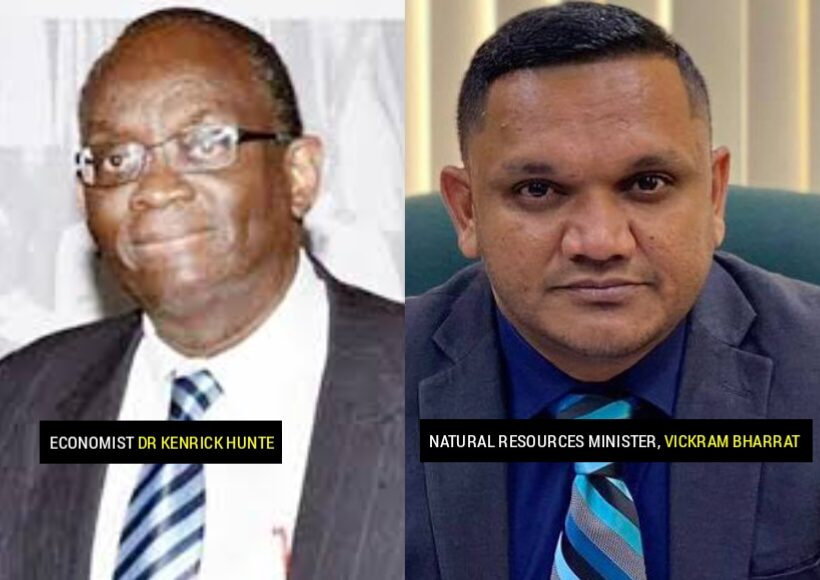The Ministry of Natural Resources, in a statement today, addressed misleading assertions made by economist Dr Kenrick Hunte in his Letter to the Editor, “Is there a shortfall in Royalty and Profits in 2023?” published in Kaieteur News on July 1, 2024.
The ministry said Hunte’s so-called “analysis” of the 2023 financial statements from ExxonMobil Guyana Limited, Hess Guyana Exploration Limited, and CNOOC Petroleum Guyana Limited, is fundamentally flawed. “He attempts to argue a shortfall in Guyana’s oil revenues, but his arguments are built on erroneous assumptions and misunderstandings,” the ministry said.
The agency further noted that the most egregious of Hunte’s mistakes is his confusion between the Stabroek Block Production Sharing Agreement (PSA) and the financial statements of the companies. The ministry said Guyana does not “profit” in the conventional sense, as it does not financially invest in offshore exploration and development like these companies do. “Thus, Guyana has no balance sheet to derive traditional profits from. Profit, as derived from financial statements, should not be conflated with the ‘Profit Oil’ mechanism outlined in the Stabroek Block PSA,” its statement said.
Additionally, the ministry noted that the PSA dictates how petroleum is distributed between Guyana and the companies, whereas financial statements merely reflect the companies’ financial performance. To put it bluntly, it said Guyana’s revenue from its Profit Oil entitlement is not a straightforward 50% of the companies’ profits.
Vice President Dr. Bharrat Jagdeo has clarified on several occasions that Guyana will always benefit more than the companies, given that Profit Oil is split 50-50, plus Guyana receives a 2% royalty on all crude produced and sold.
Taking the foregoing into consideration, the ministry said Hunte’s numbers are not just wrong; they are pure fiction. “He claims combined revenues for Hess and CNOOC are US$1.58 trillion, when in reality, they are $1.25 trillion. Discrepancies also arise from his fundamental misunderstanding of the different accounting systems involved,”the ministry said.
The Ministry of Natural Resources therefore called on the public, journalists, and commentators to ensure their reports are accurate and well-informed. “The local media space is oversaturated with ill-informed commentary on the oil and gas sector, particularly concerning the Stabroek Block PSA and its fiscal terms. Media outlets have a duty to ensure the opinions and analyses they publish are coherent and factual,” it said.
Importantly, the ministry said commentators should familiarize themselves with Guyana’s petroleum laws, including the Petroleum Activities Act and the Natural Resource Fund Act. They should also consult the monthly and quarterly reports of the Natural Resource Fund and review the financial statements of the companies involved in the Stabroek Block offshore Guyana.
“Only then can they provide informed and intelligent judgments about the sector. Any economist or financial analyst worth their credibility should honour their profession and the intelligence of the Guyanese public by avoiding simplistic and uninformed commentary on the nation’s oil and gas sector,” the ministry concluded.













